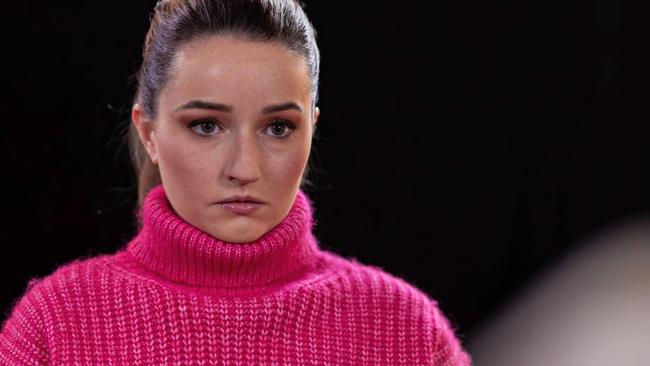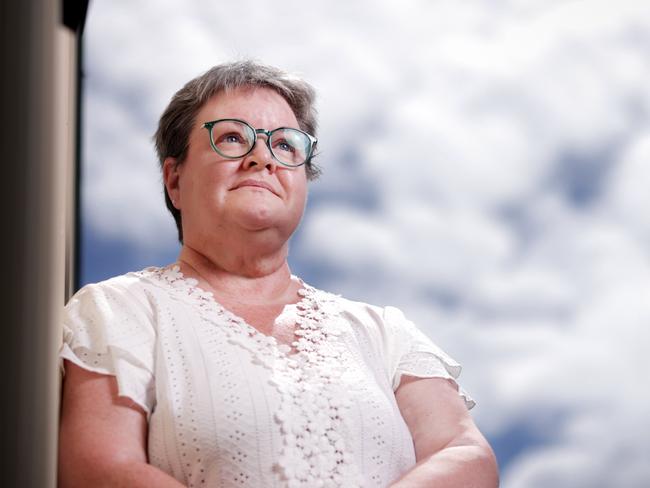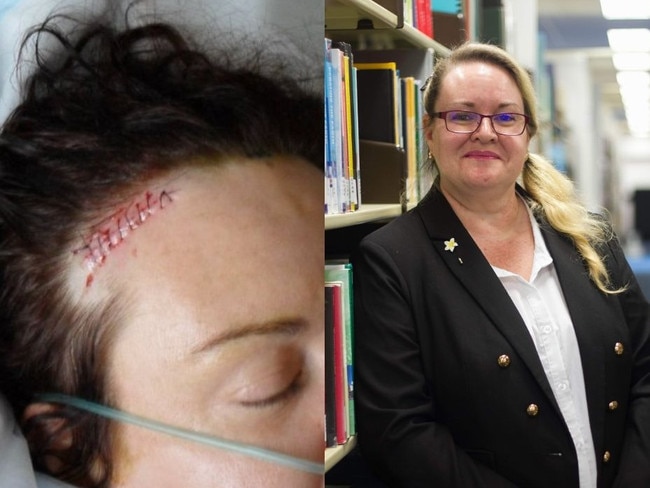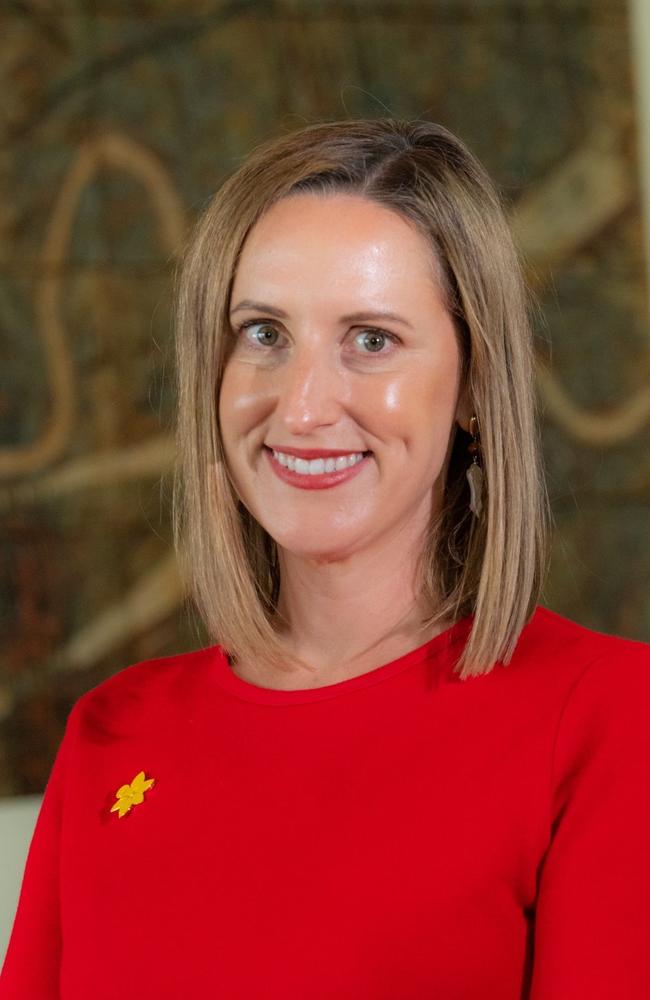Apple Cider Vinegar Netflix series: How to find factual cancer info
An Aussie woman who has been diagnosed with two brain tumours has spoken out amid the release of the Netflix series inspired by cancer fraudster Belle Gibson.
Cancer
Don't miss out on the headlines from Cancer. Followed categories will be added to My News.
A woman who has been diagnosed with two brain tumours is calling for harsher penalties for health fraudsters amid the release of the Netflix series based on Australian cancer con artist Belle Gibson.
Netflix drama Apple Cider Vinegar is inspired by the story of Melbourne’s Ms Gibson, who built an online wellness empire and falsely claimed she had cancer.
The series also features another influencer character with cancer, who turns to unproven Gerson therapy, involving a strict diet and coffee enemas.

Brisbane’s Julia Robertson, who was diagnosed with a benign brain tumour in 2003, has come across plenty of dodgy health advice.
At the time, the internet was still “fairly young” and trying to find information was “quite difficult” online.
Ms Robertson underwent surgery in 2011, but said she was diagnosed with another benign tumour — currently “small and stable” — in 2023.
“I have over the years come across quite a lot of information that hasn’t been factual … (and) all of these different things that were sort of marketed as alternate therapies, but had no real scientific basis at all,” she said.
The 51-year-old said this included people spruiking black salve — a dangerous paste that can cause disfigurement.

“I would like to see a lot harsher penalties for people who are peddling products that don’t work,” Ms Robertson said.
“If you’ve got a dire diagnosis, you’re desperate for any kind of possible treatment.”
She said in the 20 years between her tumour diagnoses misinformation on the internet had become “much worse”.
“I think social media has a lot to answer for,” Ms Robertson said.
As the co-facilitator of a brain tumour support group, she said she had to “fight fires” caused by online misinformation, such as people trying therapies that were not evidence-based or misinterpreting complex scientific papers.

Ms Robertson, who has worked with charities like the Peace of Mind Foundation, urged people to talk to their medical team before adding anything to their regimen, and to use verified information from government websites.
Melody Chew, Cancer Council Australia director of cancer control campaigns and communication, said the spread of health misinformation online made it increasingly difficult for people to make well-informed decisions about cancer prevention, treatment, and care, which could have life-altering consequences.

“Misinformation can lead people living with cancer to delay or even refuse evidence-based treatments recommended by their healthcare team, opting instead for unproven alternatives that may cause harmful side effects or interfere with effective medical therapies,” Ms Chew said.
“Evidence shows that misinformation on some social media platforms is more likely to be shared compared to accurate information, meaning it can travel further and faster than the truth.
“Cancer misinformation should be regulated by the government.
“Social media publishers and platforms should also ensure that they have adequate policies in place.”
Ms Chew said Cancer Council Australia provided evidence-based information on cancer prevention, treatment and care via its website.
“We also have a section of our website called iHeard, where people can fact-check myths they may have heard,” she said.
A health department spokesman said patients and their families should seek advice from qualified health professionals.
“The government has funded the development of several Optimal Care Pathways to guide best practice care across the cancer continuum for different cancer types and population groups,” he said.
More Coverage
Originally published as Apple Cider Vinegar Netflix series: How to find factual cancer info





